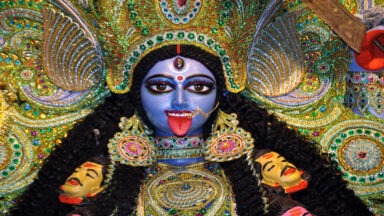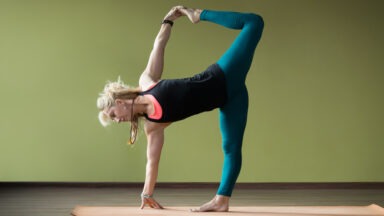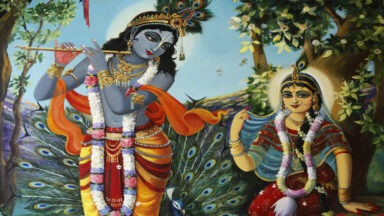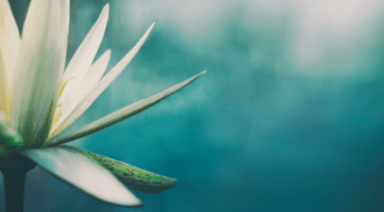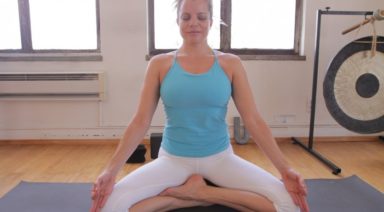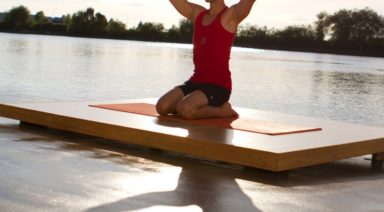Health Tips for Kapha, Pitta, and Vata Doshas
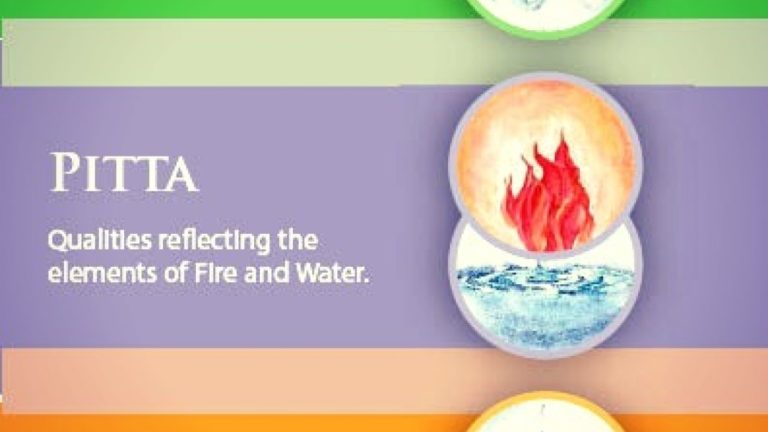
Now that you know which dosha (or combination of doshas) your body has, you can pinpoint even further exactly how your body works and responds. If you need a recap, remember that doshas are the energies that make up every individual, which perform different physiological functions in the body. Important stuff to keep track of!
It’s thanks to Ayurveda that we have knowledge of the doshas. It is a holistic science of health, focusing on maintaining a physically and emotionally balanced state. Ayurveda began about 5,000 – 6,000 years ago when Indian monks were looking for new ways to be healthy. Revering their bodies like temples, the monks believed that preserving their health would help them meditate and develop spiritually. Over thousands of years of observations, they gathered all their conclusions and advice and preserved it for future generations. This collection of knowledge came to be known as the “science or knowledge of life”: Ayurveda.
It’s a sharp contrast to modern medicine, as in Ayurveda, every individual is unique and there is no diet or lifestyle routine that works for everyone. Modern doctors, as you probably well know, simply look at the symptoms and prescribe the same pill to everyone. In Ayurveda, prevention is key. Ayurveda focuses on providing specific advice and guidance on how to maintain physical and emotional health.
As you continue thinking about your doshas, remember that food and lifestyle routines are considered the most important medicine. Try to follow the diet and lifestyle routine that fits your mind/body constitution. Each person has all three Doshas, but usually one or two dominate. Various Dosha proportions determine one’s physiological and personality traits, as well as general likes and dislikes (i.e. Vata types will prefer hot weather to cold, and Kapha types are more likely to crave spicy foods than other types). Generally these are considered to be characteristics of each mind/body type. Here are the three doshas, and the characteristics associated with each:
- Vata Dosha
The energy that controls bodily functions associated with motion, including blood circulation, breathing, blinking, and your heartbeat.
In Balance:
Creativity and vitality
Out of Balance:
Fear and anxiety
Profile:
The third dosha, Vata, tends to be the most slender of the three body types. Vata people can actually find it difficult to gain weight. Physically, Vata individuals are thin with prominent bony structures; tend to be cold all the time; have dry skin and hair; and have little muscle tone. Mentally, they learn fast and forget fast, enjoy change, and are very creative. Emotionally, Vata types are excitable, enthusiastic, but can become easily anxious.
Out of balance, Vata individuals can have poor digestion with lots of bloating and constipation. They can have dry nasal passages and easily catch colds during the fall and winter. They can also easily develop insomnia and fatigue. To help with the digestion, there is an herbal supplement, Triphala, which is a lifesaver for people with a Vata imbalance. To prevent dry nasal passages and fight off colds, Vata individuals can use a sesame oil nasal spray – you just spray 1-2 sprays in each nostril in the mornings. To fight off insomnia, a regular routine is critical, which, of course, Vata individuals tend to resist. Nonetheless, they should be waking up at the same time, eating lunch at the same time, and going to bed at the same time. Additionally, Vata types will benefit from a warm, spiced milk drink at bedtime.
Nutrition:
The dietary recommendations for Vata individuals are to avoid dry/crunchy foods, carbonated beverages, and cold/raw vegetables. Their ideal diet consists of warm, cooked, soupy foods; cooked cereals; nuts; cooked vegetables; and hot milk. Also, ghee, which is clarified butter, is particularly good for Vata individuals.
Characteristics:
Creative; quick to learn and grasp new knowledge, but also quick to forget; Slender; Tall and a fast walker; Tendency toward cold hands and feet, discomfort in cold climates; Excitable, lively, fun personality; Changeable moods; Irregular daily routine; High energy in short bursts; Tendency to tire easily and to overexert; Full of joy and enthusiasm when in balance; Responds to stress with fear, worry, and anxiety, especially when out of balance; Tendency to act on impulse; Often have racing, disjointed thoughts; Generally have dry skin and dry hair and don’t perspire much.
General Health Tips:
Maintain regular habits, try to eat and sleep at the same time every night. Get enough rest and choose foods that are warm, cooked, nourishing, and easy to digest. Sweet berries, fruits, small beans, rice, and all nuts and dairy products are good choices for Vata types. Exercise intensity should be moderate. A more meditative yoga, Tai chi, walking, and swimming are all good. Avoid strenuous and frantic activities.
- Pitta Dosha
Energy that controls the body’s metabolic systems, including digestion, absorption, nutrition, and your body’s temperature.
In Balance:
Contentment and intelligence
Out of Valance:
Ulcers and anger
Profile:
Pitta individuals are typically of medium build. Physically, they have good muscle tone; have a tendency to always feel warm; have premature graying hair or balding; have reddish complexions; enjoy high energy levels; and have really strong digestion – they can eat almost anything. Mentally, they are extremely intelligent, focused, ambitious people. Emotionally, they are passionate about life, have a tendency to be perfectionists, and can become easily irritated.
Out of balance, Pitta types can experience excessive anger, suffer from inflammatory conditions (such as headaches and rashes), encounter digestive problems (such as acid reflux, diarrhea and ulcers), and become over-stressed, workaholics. To help with the inflammation, Pitta individuals can do a quick coconut oil massage to the scalp and feet for 5 minutes before getting into the shower. To prevent the digestive problems, they can drink a mixture of a quarter-cup of aloe vera juice with a half-cup of pomegranate juice in the morning on an empty stomach. To help take the “edge off” at work and fight off stress in these worker bees, they should eat a teaspoon of rose petal jam – it can be taken alone or with toast. The rose petal jam is sweet and calming.
Nutrition:
In terms of their diet, Pitta people should avoid hot spices, alcohol, coffee, vinegar, and acidic foods like citrus and tomatoes. Of course, these are typically their favorite foods! They should eat sweet juicy fruits such as mangos and melons. They should also include lots of cooling vegetables with high water content, such as cucumbers, kale and lettuce, in their diet.
Characteristics:
Medium physique, strong, well-built; Sharp mind, good concentration powers; Orderly, focused; Assertive, self-confident, and entrepreneurial at their best; Aggressive, demanding, pushy when out of balance; Competitive, enjoy challenges; Passionate and romantic; Strong digestion, strong appetite, get irritated if they have to miss or wait for a meal; When under stress, Pittas become irritated and angry; Skin fair or reddish, often with freckles; sunburns easily; Uncomfortable in sun or hot weather, heat makes them very tired; Perspire a lot; Good public speakers; Generally good management and leadership ability, but can become authoritarian; Subject to temper tantrums, impatience, and anger; Typical physical problems include rashes or inflammations of the skin, acne, boils, skin cancer, ulcers, heartburn, acid stomach, insomnia, dry or burning eyes.
General Health Tips:
It’s important for Pittas to keep cool by avoiding overexposure to direct sunlight and fried and spicy foods. Avoid alcohol and tobacco, overworking, and overheating. When aggravated, susceptible to feeling negative emotions like hostility, hatred, intolerance, and jealousy. Choose fresh vegetables and fruits that are watery and sweet, especially cherries, mangoes, cucumbers, water melon, and avocado. Have lots of salads with dark greens such as arugula, dandelions, and kale. Avoid conflicts. Cultivate the virtues of honesty, morality, kindness, generosity, and self-control.
- Kapha Dosha
Energy that controls growth in the body. It supplies water to all body parts, moisturizes the skin, and maintains the immune system.
In Balance:
Out of balance:
Can lead to insecurity and envy
Profile:
Kapha is typically the largest of the body types. Physically, they have wide hips/shoulders; thick wavy hair; good physical stamina. Mentally, Kapha types tend to me slow to learn, but they have great memories. Emotionally, they tend to be very loyal, stable, and reliable – they are often referred to as the “rocks” in a relationship.
Out of balance, Kapha individuals have a tendency towards sinus congestion, poor circulation, and sluggish digestion that can easily lead to obesity. To help improve circulation, they can do a stimulating dry body massage, called garshana, performed with raw silk gloves – you can use a loofah sponge as a substitute. The massage helps get rid of excess water weight and is a natural cure for cellulite. Exercise is also critical to keep Kapha people in balance; if you have a Kapha body type, you have to get up and move!
Nutrition:
To combat the congestion, Kapha types can add garlic to their diet or take garlic supplements. To help boost metabolism, Kapha individuals can use the herbal supplement guggul, which is a plant that is closely related to myrrh. The dose of guggul is typically 75mg-150mg a day.
Characteristics:
Easygoing, relaxed, slow-paced; Affectionate and loving; Forgiving, compassionate, nonjudgmental nature; Stable and reliable; faithful; Physically strong and with a sturdy, heavier build; Have the most energy of all constitutions, but it is steady and enduring; Slow speech, reflecting a deliberate thought process; Slower to learn, but outstanding long-term memory; Soft hair and skin; tendency to have large “soft” eyes and a low, soft voice; Tend toward being overweight; may also suffer from sluggish digestion; Prone to depression; More self-sufficient; Gentle, and essentially undemanding approach to life; Excellent health, good immune system; Very calm; strive to maintain harmony and peace in their surroundings; Not easily upset and can be a point of stability for others; Tend to be possessive and hold on to things. Don’t like cold, damp weather; Physical problems include colds and congestion, sinus headaches, respiratory problems including asthma, allergies, and atherosclerosis (hardening of the arteries).
General Health Tips:
It’s important to be active on a daily basis as Kapha types are prone to sluggishness, depression, and being overweight. Getting out of the house and actively seeking new experiences is also recommended. Be receptive to useful change, be intentional in implementing life-enhancing actions. Choose foods that are light, warm, and spicy. Tea with dried ginger and lemon is a great pick-me-up for Kaphas. Avoid heavy oily and processed sugars, which are detrimental to Kaphas. Use lots of spices such as black pepper, ginger, cumin, chili and lots of bitter dark greens.
Dinacharya: Your Daily Yogic Routine

Translating to “knowledge of life” in Sanskrit, Ayurveda is the 5,000 year old sister science of yoga that assists practitioners in leading their lives by way of intuitive rituals. In adhering to one’s specific needs, those utilizing the practice of Ayurveda fall into rhythm with the seasons of self, emulating Mother Nature’s transitions and revelations in spring, summer, fall, and winter.
The Ayurveda practice of dinacharya, or “law of nature,” consists of daily self-care routines, which provide structure for instilling balance and establishing cohesiveness in the physical, mental, and emotional bodies.
The Doshas
Dinacharya is based on the philosophy that human beings run on a biological clock dictated by the patterns of the sun and the moon; different times of day adhere to different types of energy. These energies, known as doshas, connect the body and the mind in functionality. Three doshas exist: vata, kapha, and pitta; each dosha is associated with elements found in nature.
Vata
The first and early waking hours of the day 2am to 6am, and their afternoon inverse 2pm to 6pm, are identified as vata, which is associated with the elements of air and ether, or a sense of lightness. Movement is incredibly important at these times, as they are both transitional periods. In the early hours of the morning, it is believed that sleep and dreams are most active and that we are most receptive to thought; in the afternoon, many experience the need to mobilize to reenergize, sparking creativity.
Kapha
From 6am to 10am and 6pm to 10pm, it is said our kapha energy governs the manner in which we show up in the world. Kapha works in relation with earth and water, countering vata’s airiness with a sense of grounding.
Pitta
Pitta energy runs its course through our systems during the hours of 10am to 2pm, and 10pm to 2am. Related to fire and water, waking pitta hours are correlated with high productivity. During the wee hours of the evening, typically the mind is resting, but the internal organs are vigorously cleansing the body, preparing us for the next day to come.
A Path to Balance
When the body and mind are in balance with these cycles, we experience a sense of contentment in all areas of our lives. As represented by the changes in even a matter of hours, the human condition is not static. It is not uncommon for one of the doshas to dominate at different points in time, regardless of where the dosha cycles suggest we should be landing on the energetic spectrum. We do not remain in a place of equanimity without putting forth awareness and effort, but it is possible to achieve balance through establishing a dinacharya routine.
Dinacharya practices help to establish congruence in our vata, kapha, and pitta energies.
When instability encroaches into our energetic cyclicality, we may feel noticeably “off” and over time, unbalanced physical, mental, and emotional bodies breed disease and dis-ease. Benefits of dinacharya can be experienced almost immediately, and can serve vitality for decades when adhered to properly.
Components of dinacharya can be incorporated into virtually any time of day, and can be quite extensive; according to Aryuvedic Physician Vasant Lad, there are nineteen steps composing a proper morning awakening of the physical and mental bodies alone. Many traditional dinacharya practices applicable to specific hours of the day can be adapted and become inputs to forming a consistent self-ritual.
Wake Before the Sun
This vata time of day is believed to be one of quiet connection. Once the sun is in the sky, the clock of Ayurveda ticks to kapha, signaling it is time to move and be productive. Waking earlier than you usually may begin the day offers a chance to connect energetically with self, rather than your inbox first thing.
Meditation
Because the morning boasts fresh energy and serenity, this segment of the day has the potential to serve as an undistracted platform for meditation. Perhaps your sit consists of a few quiet moments, or maybe lasts a bit longer. Returning to a mindfulness practice at the end of the day allows for you to come full circle with your day’s experience, and is effective in supporting more restful sleep.
Movement
Finding time to be active throughout the day is important for maintaining balance and focus, as well as setting the stage for fulfilling the day’s requirements with ample energy.
In the morning, support the waking of your body in a way you enjoy, whether it be taking a brisk walk around your neighborhood, working with kriya, hitting the mat for Pilates, or devoting time to your yoga practice to energize or unfold slowly.
The afternoon is a prime time to get the blood flowing. After your largest meal of the day is consumed at lunchtime, give yourself at least 10-15 minutes for a walk or afternoon stretch to promote blood flow, ensuring the body and mind stay fired and inspired. Evening calls for gentler movement, such as a yin yoga practice, so that sleep may be gracefully eased in to.
Oil Pulling
This practice has been an aspect of dinacharya for thousands of years, and involves swooshing oil, such as sunflower or sesame, around your gums and teeth for 15-20 minutes each day, typically in the morning. Oil pulling is effective in removing toxins and parasites, which reside in the nooks and crannies between teeth, around the tongue, and in the gums.
These organisms not only affect the outer appearance of our pearly whites, but are often the root of inflammation and infection occurring throughout the body.
To reap the benefits of a brighter smile, clearer sinuses and skin, and healthier immune system, simply drink a glass of water upon waking, melt 1-3 tablespoons of an oil of your choice either on the stove or in your mouth, gargle for 20 minutes (this can be done while preparing breakfast or lunch, reading emails, etc.), spit, and rinse with water.
Self-Massage
Known as Abhyanga in Ayurveda, self-massaging is often practiced as a component of dinacharya in either or both the morning and the evening. According to Sandhiya Ramaswamy, regarded Ayurvedic chef and educator, abhyanga, when performed daily, enhances balance in the energy bodies and overall longevity, calms the nervous system, softens skin, and tones muscle, amongst other benefits. Using warm oil, start at your scalp and work your way down the body using your fingertips and palms. Once applied, allow for the oil to marinate into your skin for five to ten minutes, and follow with a warm bath or shower.
Skin Brushing
This Ayurvedic technique requires a very small time investment, but pays greatly in its dividends. Using silk gloves or a dry skin brush, start at the feet and work your way up to the crown of your head. According to Dr. John Doulliard, director of LifeSpa.com, a leading resource in Ayurvedic wellness, brushing toward the direction of your heart drains the lymphatic system, and can help the body move waste more quickly and stimulate the burning of fat. This technique can be practiced preceding self-massage for added benefit.
Nourish Properly
Morning and evening meals should be light in comparison to your lunchtime consumption. Afternoon is the time of day most appropriate for intake of your heaviest meal, for several reasons. The digestive system has fully awakened, and the body has ample time to break down what has been consumed without interrupting your awakening or your sleep cycle. Agni, or digestive energy, is in full force; in order to keep the fire roaring, it is necessary to fuel adequately.
According to Monica Bloom, author of “In Your Elements: A Blooming Ayurvedic Guide to Creating Your Best Life,” a warm, vegetable-filled plate should be consumed at this time. Acknowledging this may not be ideal for meals eaten at work in terms of preparation, Monica suggests preparing a large batch of healthful dishes at night, eating a small portion for dinner, and bringing the majority on the go with you the next day to save both time and hunger pangs.
Head to Bed Early
It is recommended to begin your evening ritual around 8:30pm to ensure a restful transition into your evening rest. Unwinding with a book or a bath serves as a palate cleanser between the busyness of the day and the tranquility of bedtime. Establishing an early bedtime initiative for your self can also prevent late-night, metabolism-hindering snacking; around 10pm, pitta energy kicks back in which, when awake can spark hunger, when resting allows for full-body restoration.
The above are only a select few options on the full menu of dinacharya offerings. Taste one, taste all offerings; Director of Ayurveda Programs at Shankara Ayurveda Spa Medha Garud notes that the adoption of two dinacharya-inspired changes can make a difference when enveloped into your day-to-day routine. The implementation of a personal dinacharya ritual can serve as powerful and effective insurance for physical, mental, and emotional congruence and observance.







